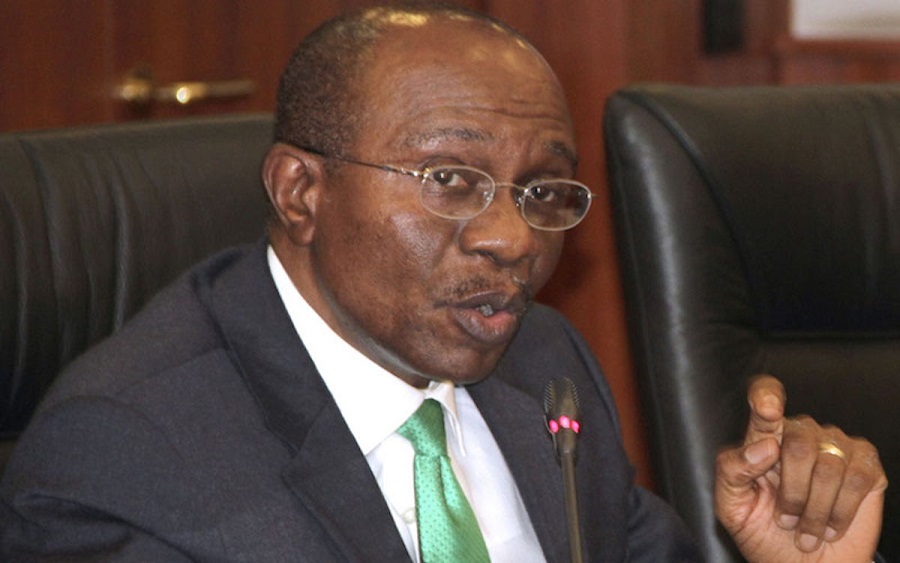The reasons the Central Bank of Nigeria (CBN) decided to ban trading on cryptocurrency in the country seems to be getting clearer.
The apex bank had warned local financial institutions against having any transactions in crypto or facilitating payments in cryptocurrency exchanges.
According to a report from Thisday, the Federal Government and the CBN were warned by the United States’ Federal Bureau of Investigation, (FBI), on the activities of fraudsters using cryptocurrencies to illegally bring in funds running into hundreds of millions of US dollars from US and other western economies into the country.
READ: Analysing the Central Bank of Nigeria’s Dollar Remittance Policy
Their activities were said to have particularly targeted at Covid-19 stimulus packages designed to cushion the impact of lockdown measures on businesses and working families in these countries.
The President of the European Central Bank, Christine Lagarde, had, last week Wednesday said that trading in bitcoin had led to some reprehensible activities, which includes money laundering.
Lagarde, in an interview at a Reuters online event, said of bitcoin, “It’s a highly speculative asset that has led to some reprehensible activity, including money laundering, and any loopholes need to be closed. There has to be regulation. This has to be applied and agreed upon at a global level because if there is an escape that escape will be used.’’
READ: Over 50% of Crypto exchanges have weak or porous KYC checks
What the investigation is saying
The report from Thisday says that FBI had discovered that fraudsters from Nigeria, popularly known as yahoo boys, took control of large chunk of funds released as stimulus in the wake of the devastating impact of the coronavirus pandemic, which has put many Americans out of jobs.
The fraudsters had been sending millions of dollars to Nigeria through cryptocurrencies in order to avoid any form of detection, thereby making it difficult for authorities in both US and Nigeria to trace such illicit funds.
The CBN decided to effect the ban on cryptocurrency trading before such funds will be used to destabilize the Nigerian economy. This is as Nigeria is said to have become the second country in the world with the biggest cryptocurrency transactions in the last 6 months.
Reports from highly placed sources within the presidency revealed that these fraudsters remitted between $200 and $300 million to Nigeria every week, using cryptocurrencies, just as intelligence reports indicated that kidnappers had switched to bitcoin for ransom payments, making it increasingly difficult to trace.
This compounded by FBI investigations which showed that Nigeria did not have the underlining economic base to justify such huge inflow of funds on a weekly basis.
READ: Bitcoin: The good, the bad, the future
What you should know
- Nairametrics had earlier reported that the CBN on Friday warned the Deposit Money Banks, Non-Financial Institutions and other Financial Institutions against doing business in crypto and other digital assets.
- The apex bank directed the financial institutions to immediately close the accounts of such persons or entities transacting in or operating cryptocurrency exchanges, warning of severe regulatory sanctions in the event of any breach of the directive.
- This latest directive is coming after the CBN had in 2018 stated that cryptocurrencies are not a legal tender and as such are illegal.
- The CBN action has provoked some reactions from Nigerians, many of whom have faulted the apex bank’s directive, saying that there is no logical reason to prohibit crypto enabled transactions and that it runs contrary to the present administration’s promise to lift 100 million Nigerians out of poverty.
- They said this will discourage investment in Nigeria, especially in a fintech startup as it could be reversed at any time.
- Former Vice President, Alhaji Atiku Abubakar, in a statement, advised the CBN to reverse the decision, arguing that the country couldn’t close her economy at this time as this is definitely the wrong time to introduce policies that will restrict the inflow of capital into Nigeria.
A cryptocurrency (or crypto) is a digital unregulated currency that could be used to buy goods and services but uses an online ledger with strong cryptography to secure online transactions.
Much of the interest in the currency, not backed by any government, is to trade for profit, with speculators at times driving prices skyward.
